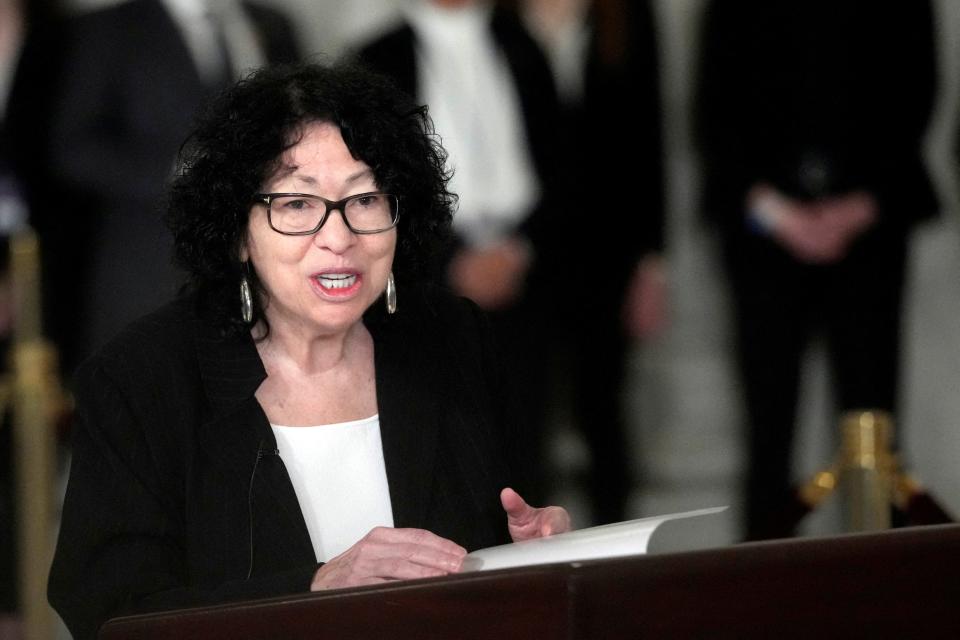'Stay awake or be arrested': Sotomayor's passionate dissent in homeless encampments case
Unconscionable and unconstitutional.
That’s how Justice Sonia Sotomayor on Friday described punishing people for sleeping outside when they have no where else to go.
“Sleep is a biological necessity, not a crime,” she wrote in her dissent of the Supreme Court's decision upholding an Oregon city’s anti-camping ordinance aimed at preventing homeless settlements.
To emphasize her opposition, Sotomayor read her dissent from the bench. It was not the first time in recent weeks she has taken to the bench as the voice of the court's liberal wing, including one that she argued could undermine same-sex marriage.
On Friday, she accused the majority of focusing almost entirely on the needs of local governments and not enough on “the most vulnerable in our society.”
More: 'You have to shed the tears': Justice shares that she cries after some Supreme Court cases

Sotomayor shared some of their stories, including a Nashville man who had trouble securing housing because he had been frequently arrested for being homeless. His outreach worker gave him a T-shirt that read: “Please do not arrest me, my outreach worker is working on my housing.”
Sotomayor said the majority was deluding itself in finding that the Oregon city of Grants Pass didn't criminalize the state of being homeless because the camping prohibitions apply to actions, not people.
More: One big happy 'family'? Supreme Court justices talk of unity as they weigh explosive cases
“Under the city’s laws,” Justice Neil Gorsuch wrote for the majority, “it makes no difference whether the charged defendant is homeless, a backpacker on vacation passing through town, or a student who abandons his dorm room to camp out in protest on the lawn of a municipal building.”
That view, Sotomayor wrote, “describes a fantasy.”
In reality, she said, only the homeless are being ticketed.
Sotomayor, one of three liberal justices who opposed the ruling, said the majority ignored the half a million Americans who live unsheltered every night. She said punishing people for being homeless is ‘cruel and unusual’ under the Eight Amendment.”
Grants Pass, Oregon: In major decision, Supreme Court allows cities to ban homeless camps
While acknowledging the difficult task faced by local governments responding to the housing crisis, Sotomayor said people experience homelessness for “complex and interconnected issues” that range from stagnant wages and rising housing costs, to domestic abuse and psychiatric disabilities.
Criminalizing homelessness, she said, can cause a “destabilizing cascade of harm” that includes losing personal documents or identification when encampments are cleared. It also leads to unpaid fines and incarceration that can result in losing work, benefits or housing opportunities.
Sotomayor, who grew up in public housing in the South Bronx, concluded society will come together to address the nation’s homelessness crisis.
“I remain hopeful that someday in the near future, this Court will play its role in safeguarding constitutional liberties for the most vulnerable among us,” she said.
On Friday, she concluded, the court had abdicated that role.
This article originally appeared on USA TODAY: Supreme Court homeless decision, Sotomayor offers fiery dissent
